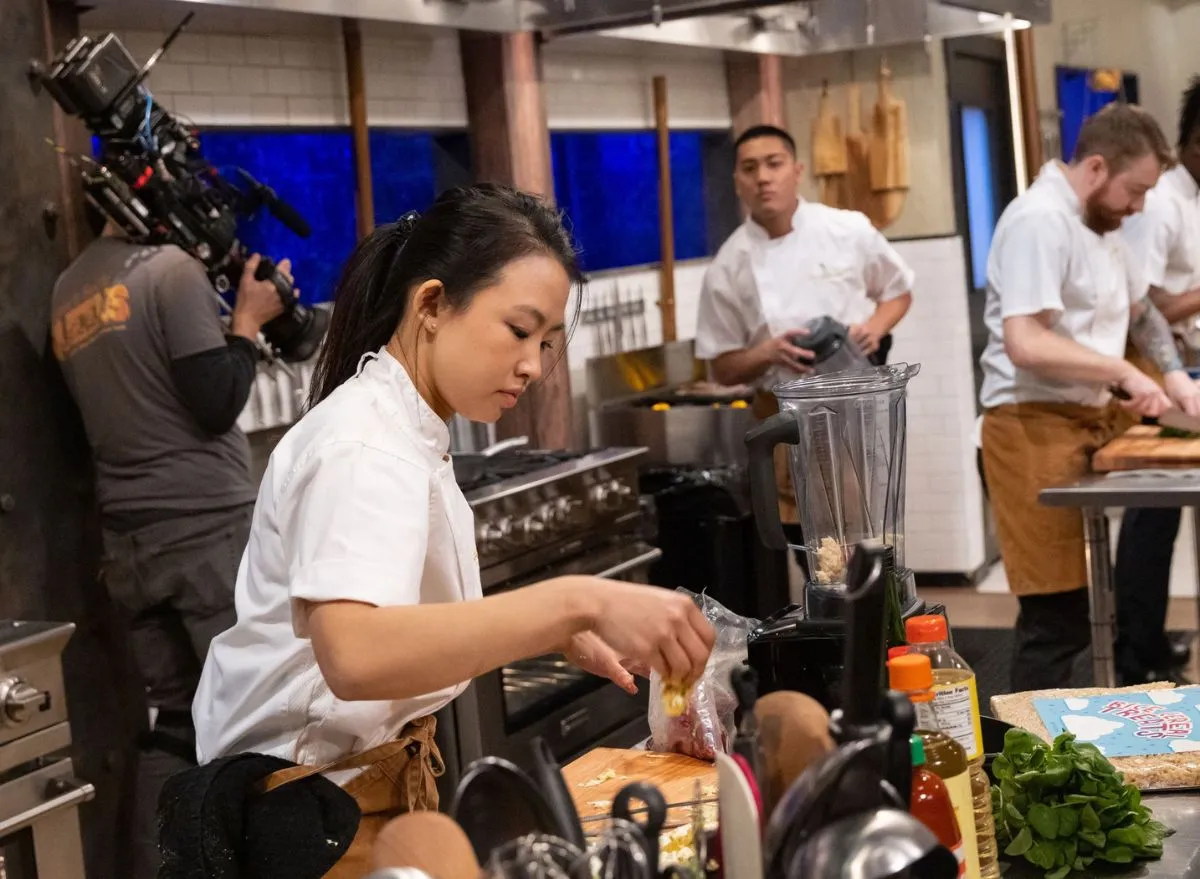6 Rules You Never Knew Cooking Show Contestants Have To Follow
While there is some variation, the first scene is always similar: Chef contestants open a box of mystery ingredients and have to cook a fabulous meal for a panel of celebrity chefs. We watch from our couches as they explain their culinary POV via voiceovers, burn things, cut themselves, and inevitably, have to go home or win the grand prize. But what really happens on a cooking show set and are there secret rules all the contestants have to follow?
The top three most-watched cooking shows in the U.S. are Top Chef, Chopped, and MasterChef, per Ranker. While each of them requires competing chefs to sign non-disclosure/confidentiality agreements, word of mouth can slip through the cracks and it travels extremely fast. In addition to these little slips here and there, there have been former contestants who've decided to openly share what it was really like to be on these famous cooking shows and the strict rules they have to abide by. And we're here for every second of it.
You may never watch your favorite culinary shows the same after learning these 6 rules you never knew contestants have to follow. However, don't turn away yet, instead, take a look and see for yourself if you could possibly survive the heat in any of these kitchens.
Many contestants are required to stick around for post-show interviews.
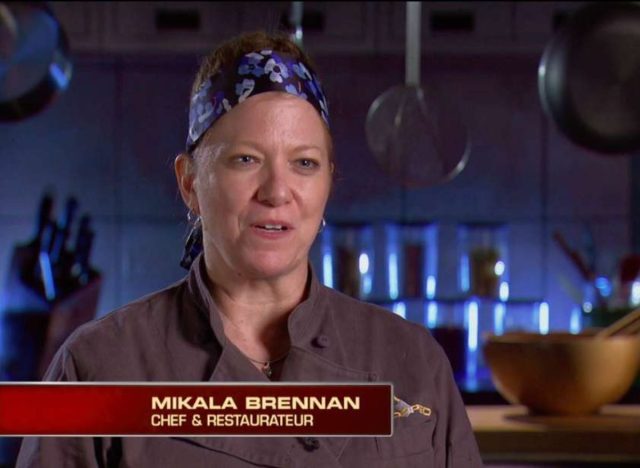
Regardless of winning or losing a cooking show, contestants have to talk about everything that went down after the fact. Shows like Chopped and MasterChef—both real-time, reality-style shows where competitors are under a tight time restriction—require post-show interviews for all contestants and according to E! News, they can take hours to film. Kathy Fang, a former Chopped winner, told Delish in an interview, that these on-camera Q&As are a majority of "where contestants explain what's going through their minds at any given moment." An entire day of filming can take over 14 hours.
Professional chefs can't compete on Master Chef.
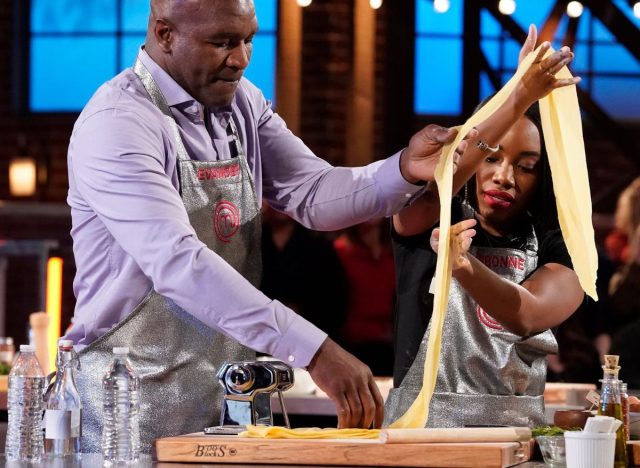
This rule doesn't apply to all cooking shows across the board, but it's mandatory for all MasterChef competitors. The intense show doesn't allow professional chefs or anyone who has ever worked as a professional chef. As stated on their application website, "your current main source of income cannot come from preparing and cooking fresh food in a professional environment (restaurants, hotels, food trucks, catering, etc)." Basically, you must be fresh out of the oven yourself and ready to learn everything from scratch that you can in such a short amount of time.
Contestants must abide by leveled playing fields.
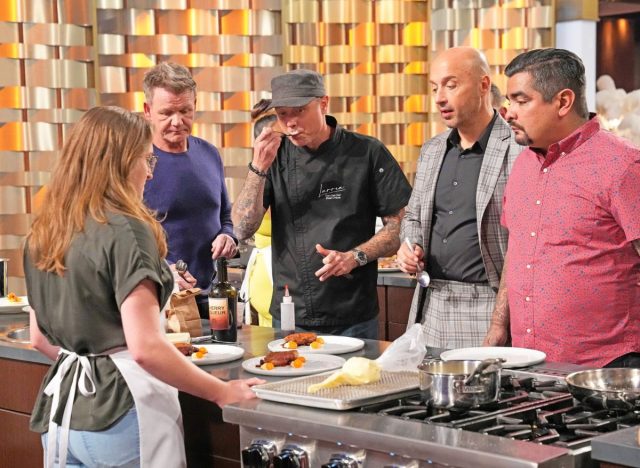
All is fair in love and war—and also in high-pressure cooking shows. While it shouldn't be a surprise that these culinary competitions are only designed to test the best, it's not uncommon to think that reality TV has some staged situations or maybe a judge was given a script. However, MasterChef for example hires a team of standards-and-practices officials, Lucky Peach reports, these aren't judges nor are they influenced by judges. The job of the team is to monitor contestants during each and every challenge, and establish equality for the chefs by giving all of the same advantages as the competitors to their left or right.
Cutthroat Kitchen chefs couldn't bring their own cooking equipment—with one exception.
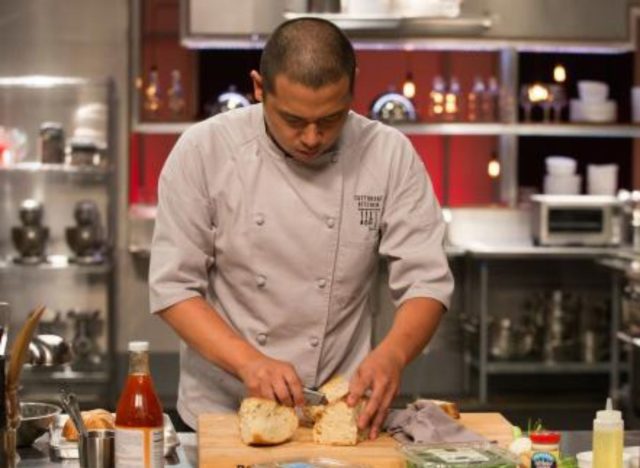
Cutthroat Kitchen, a former show on Food Network, had a unique rule for chefs and their kitchen tools. A former contestant explained that he was allowed to bring his own set of knives, yet was only granted permission to use a total of three knives while in the midst of a challenge.
Not all shows are as strict, although, they do insist on providing chefs with appropriate and colored chef coats and/or aprons recognizable by network. Competitors are all in the assigned uniform during production, but then it's vital they return the gifted attire when the cooking is all said and done.
Production can pick your "sob" story introduction.
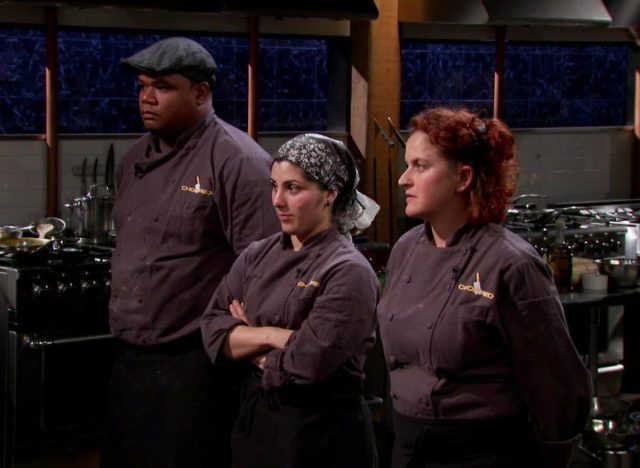
As you'd expect going on national television, there have been contestants who've come forward and said that they had to be prepared to share their personal life alongside their professional life. Plus, pretty much everything filmed is up for grabs in editing, this includes your audition tape, pre- and post-show interviews, and everything in between during the heat of competition.
Josh Lewis, the runner-up contestant in the 23rd season of Chopped, told AV Club that he had discussed his struggle with anxiety to producers early on (before he was selected for the show) and it became somewhat of his story that he was taking on the challenge of the particular cooking show to try and overcome it. "They're trying to tell a story with each contestant and they want something that will appeal to the audience," Lewis explains in the interview.
Chefs have little to no contact with the outside world during filming.
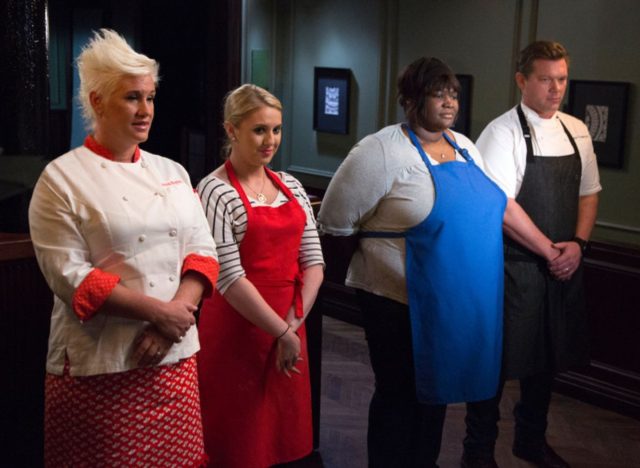
No one is a fan of spoilers, but most especially a network trying to output a highly anticipated, ruthless cooking show. To prevent any insider leaks, shows such as the Worst Cooks in America don't allow their participants to have access to phones, the internet, and sometimes even other television shows, Mashed reports. The precautionary measure not only restricts the ability of chefs to post to social media about future events on the show, but it also can have some competitors feeling very isolated and can make for some genuinely emotional real-life TV.
